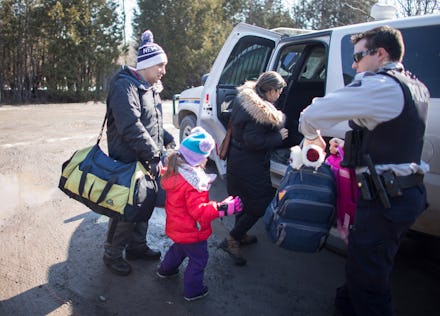Trump administration weighs splitting up families at the Mexican border to deter migrants

President Donald Trump's administration is weighing new a policy that would allow immigration officials to separate children from parents awaiting their asylum hearings, Reuters reported Friday.
A federal appeals court ruling doesn't allow children to be kept in detention centers for too long. Until now, detainees with children have been released while their asylum request worked its way through the courts. That way, families could stay together.
However, Trump has criticized this process — sometimes referred to as "catch-and-release" — arguing it creates an incentive for mothers to immigrate to the United States with their children without getting the proper documents.
Under the new policy, described to Reuters by multiple officials with the Department of Homeland Security, children who are brought to the United States by their parents will be placed in protective custody until a relative or state-sponsored guardian can be found.
The policy hasn't been enacted yet, and Homeland Security and the White House didn't immediately respond to requests for comment.
Immigration activists are worried.
"This is fundamentally contrary to sound policy and fundamentally contrary to how we treat human beings," said Kamal Essaheb, policy and advocacy director with the National Immigration Law Center. "We'll take any steps, including going to court if we have to."
The president's tough immigration policies have already begun to separate families. Even beneficiaries of the Deferred Action for Childhood Arrivals program are reported to be facing the possibility of deportation despite their protected status.
Somewhat ironically, the news broke shortly after Harper's Magazine published an English translation of a 1905 letter — allegedly written by Trump's grandfather — Friedrich Trump, begging German authorities not to deport him.
"My wife has been overcome by anxiety, and my lovely child has become sick," the elder Trump wrote. "Why should we be deported? This is very, very hard for a family."